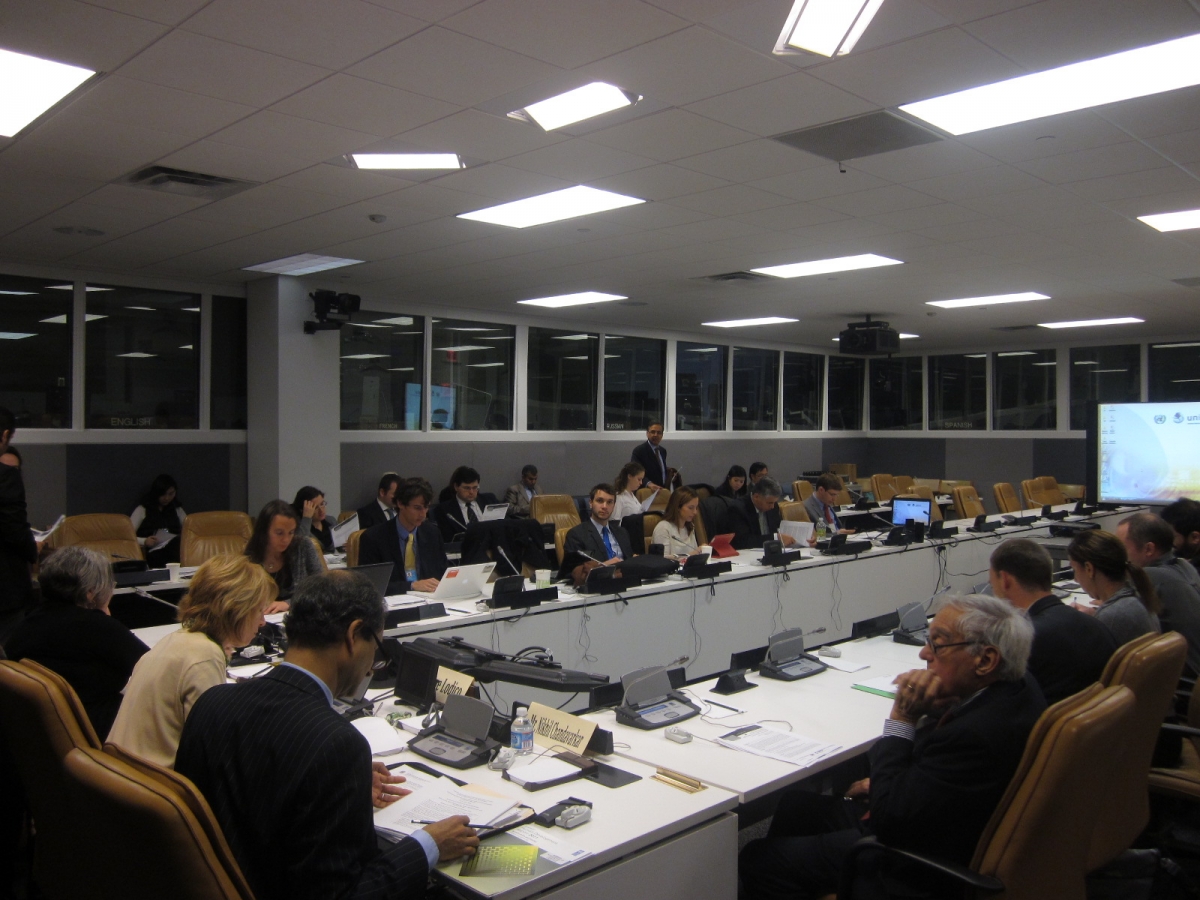 This forum aims to give diplomats a comprehensive knowledge of the complexities of sustainable development issues and provide them with the necessary tools to participate in the negotiation process. This opening workshop addressed the main themes of the Rio+20 Conference: the institutional framework for sustainable development and a green economy.
This forum aims to give diplomats a comprehensive knowledge of the complexities of sustainable development issues and provide them with the necessary tools to participate in the negotiation process. This opening workshop addressed the main themes of the Rio+20 Conference: the institutional framework for sustainable development and a green economy.
Ambassador Maria Teresa Mesquita Pessôa, Minister Plenipotentiary at the Permanent Mission of Brazil to the United Nations, opened the workshop and shared the host country’s vision for sustainable development and green economy. Ambassador Pessôa emphasized how Brazil strived to make this conference happen, and is putting a great deal of effort to ensure renewed commitment for sustainable development. Mr. Chandavarkar from the Department of Economic and Social Affairs (DESA), Division of Sustainable Development, delivered the summary of the preparation process, identified a number of critical emerging challenges for Rio+20. These included green jobs and social inclusion, energy access, food security, sound water management, sustainable cities, ocean management and disaster preparedness. Climate change cuts across all of these areas. This opening session laid out the expectations and the work to be done on the road to Rio+20, topics which the next two sessions addressed.
The panel on “The Institutional Framework for Sustainable Development” brought together Mr. Tariq Banuri, former director at the Division for Sustainable Development at DESA, Professor Peter Brown from McGill School of Environment (via skype) and Mr. Michael Herrmann, Adviser on population and economics at the United Nations Population Fund. They noted that both developing and developed countries face the problem of achieving sustainable development together and, thus, have to solve the problem together.
A closing panel on “A Green Economy” brought Ms. Amber Barth, Programme Officer at the International Labour Organization and Mr. Munyaradzi Chenje, Senior Environmental Affairs Officer at the United Nations Environment Programme. This expert discussion covered some key elements involved in the green economy transition debate. Panellists called for “decent work” to be included as a central category when thinking about a green economy. Human beings ought to be at the centre of any thinking about a green economy.
Overall, this first RPF special briefing showed that rigorous thinking can provide new angles and incentives for ensuring sustainable development.

